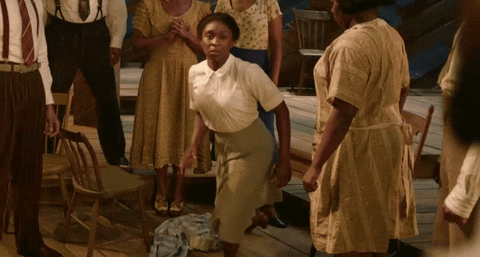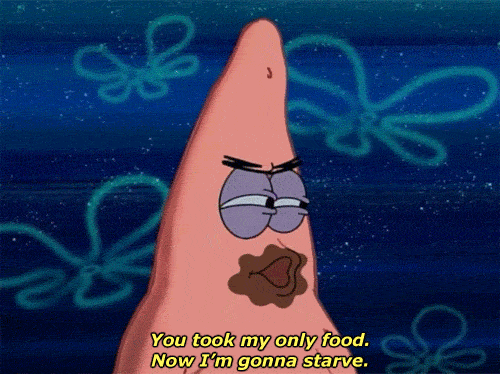Why Don't We Respect African Americans?
Bonjour Brainiacs! Long time no see. Lowkey, we missed ya’ll. We hope that you’re ready to resume regular programming after this long commercial break.
So before we jump into today’s conversation, we just wanna set some parameters.
These are just our opinions.
We understand that our opinions and views are inherently skewed because we are not Black Americans.
For the purposes of this article, the terms “Black American” and “African American” are interchangeable.
Ok, let’s jump in.
Have you ever wondered why other Black people don’t like Black Americans?
If the answer is no, then either A. You’re not black or B. You’re willfully ignorant.
Either way, we’re here to educate you on a subject that has been somewhat silently plaguing the Black global community for years.
Recently, this debate has come to the forefront of conversation for “Black” Twitter via the whole Cynthia Erivo situation. If you do not know, Cynthia Erivo is a well known Nigerian British Actress who has had much success on Broadway as well as appeared in big blockbuster films like “Widows”.
Cynthia Erivo
Black Americans have expressed discontent at the fact that more and more Black British actors have been cast in place of Black Americans. The casting of Cynthia Erivo as the African American Hero, Harriet Tubman, ruffled some feathers from the beginning. To add insult to injury, Erivo tweeted some tweets that were mocking African American Vernacular (AAV).
This is only one example. If you want to see more examples then click HERE.
Ironically, these tweets were tweeted on Akayla’s 16 birthday. Go figure lol. Anyways, as you can you see the tweets were a little disrespectful. They served as the straw that broke the camels back.
Black Americans face persecution in their own country every single day and in the world at large. Nationalized Black American citizens are very quick to separate themselves from native Black Americans. We believe they separate themselves to escape the negative connotations that are forced upon native Black Americans. They want to create an air of superiority.
The ultimate gag is that here in America, they don’t give a flying f@#$ if you’re the most Jamaican or African or Haitian person to ever walk the Earth. If you have darker skin, you’re black and will face the same persecution, irregardless of nationality.
Race is a social construct that does not define anyone but yet here we are. The problem with race is that it strips people of their ethnicity and heritage because it washes over a lot of things that make people who they are. This does not only apply to Black people but any race in general. A Jamaican is a fundamentally different person from an African American, just as an Italian is different from a white American.
(Well, this is a mostly true statement but we don’t have time to get into all of that)
Now as you know, we are proud Jamaicans who have been living in America for upwards of 17 years combined. More than half our lives. We’ve experienced life being perceived as black in America but we always felt the need to separate ourselves from African Americans. If we are honest, the separation is caused by two things:
The need to separate ourselves from the negative connotations of being a Black American
The differences in culture between African Americans and Caribbeans, even though we do share many similarities.
This need for separation is very silly because at the end of the day, we are still black and share a lot of mutual history.
We think that the divide has been fueled by the difference between the emancipation of slaves in the Caribbean, Africa and the U.S., thus creating a divisive culture between black people all over the world. While Africans and African Caribbeans were able to fight and take back their freedom, Americans fought but were gifted a false sense of freedom. In both situations, white people really just swapped out physical chains for financial chains but that’s another article for another day.
Black people in the Caribbean experienced a black nation with complete freedom, African Americans still had to fight for their basic human rights and still to this day continue to fight.
Africans and Caribbean individuals grew up in communities that were majority black while Americans did not have this luxury. This led to many Black Americans not being able to record their own languages, religion, or customs until later after they won their freedom. Their opportunities to trace their history and customs were robbed from them during the slave trade. Nowadays, the “woke” movement has inspired many African Americans to seek out their African roots and embrace traditional black customs.
Although, some non-American Black people have reacted unfavorably to African American exploration into traditional African culture. A vast majority of non-Americans claim that Americans have no culture except negative things like obesity, and other “ghetto” stereotypes. Despite the fact that Black American culture is the most trendsetting culture in the world, they are rarely recognized for their contributions to the world. They constantly experience the robbery of their culture
Black naturalized citizens have the luxury to separate themselves from America’s tomfoolery when they please with statements such as “Well, I’m XYZ. I’m not really American. That has nothing to do with me because I wasn’t even here.”
Black Americans do not have that choice. They have no place globally or in their own country, they have a right to be upset.
In this 2015 NBC Black article, the author discusses the way that Caribbean people look down on African Americans when they immigrate to America.
Here is a direct quote from the article:
“While the majority of my immigrant students could weigh in on why they considered African Americans less successful, Caribbean immigrants in particular were at pains to define themselves as separate from native born African Americans. Most discouraging was their de facto confidence that American blacks made poor decisions, and their lack of criticism of undeserved racist stereotyping.”
Whether non African Americans wanna admit it or not, we are privileged culturally.
We have:
The ability to remove ourselves from certain parts of history
The ability to detach from the historical hurt of the N-word. (Personally, sometimes we use the N-Word with the HARD -er, jokingly. Not in a disrespectful manner, but we do not flinch at the use of the word.)
A culture separate from American traditions and customs. A culture that sometimes we weaponize as a way to demean African Americans traditions.
Now that we have the education, let’s put it all together to give our opinion on the whole Cynthia Erivo situation.
We never want to intentionally invalidate the feelings of Black Americans when it comes to how they are represented and who represents them. On the same hand, we have to be true to our opinion. We completely agree that Erivo’s tweets were disrespectful but they gave her the role of Harriet because they were impressed with her talent. We are not implying that African American actors aren’t talented because that’s A BIG LIE. Two words. Angela Bassett.
However, we have observed some very hypocritical behavior from the AA community on this one. Many historical black figures have been played by non-American Black people before and there has been little to no backlash. We understand that you want to be represented by your own people but if African American actors can portray African, Caribbean, and European characters then Black British people can portray Americans. Period.
We loved it when Chadwick Boseman was running around here with his faux Nigerian accent, screaming “Wakanda Forever” every five seconds. It was a great performance, just like how we loved when Daniel Kaluuya beat the mess out of Rose’s brother in Get Out.
He is so cute…
We love and respect Black Americans. You have endured many atrocities and continue to progress in spite of those setbacks. We also want to see fellow black immigrants shine.
What do you think about Cynthia Erivo’s tweets?
Do you agree with people of one nationality portraying characters of different nationalities?
Lastly, and most importantly, did you learn something?
Let us know in the comments below or connect with us on Twitter and Instagram @barelybrainiacs.





